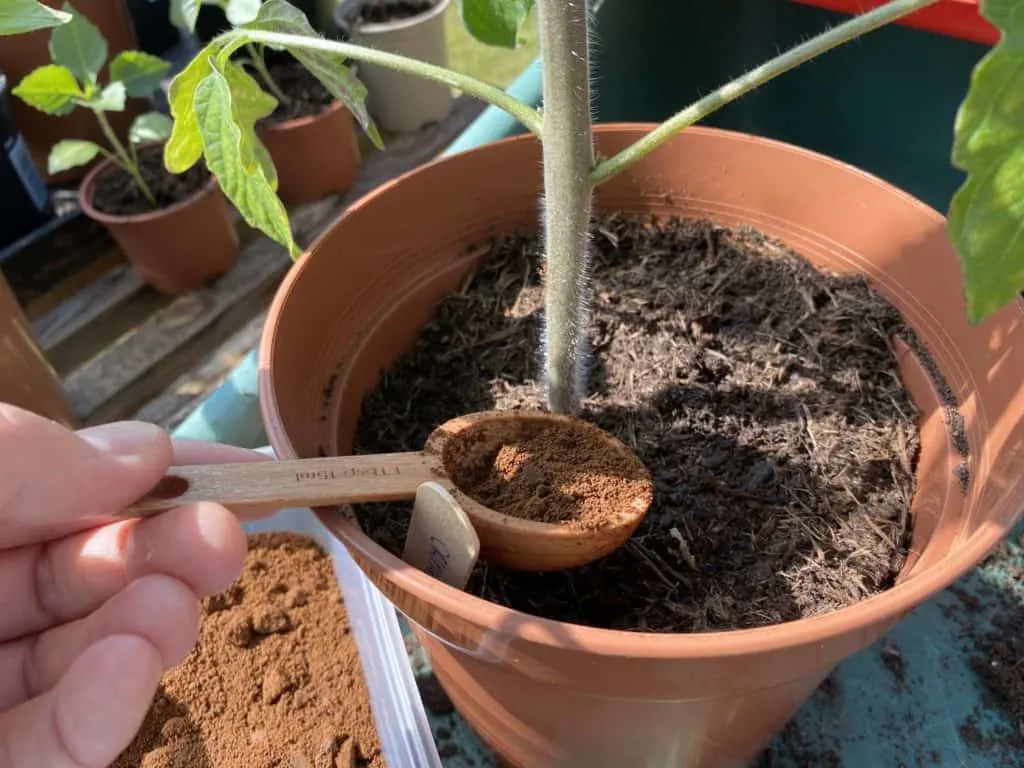
Coffee grounds are recommended by gardeners worldwide for a range of gardening ills.
From fertilizing, to mulch, to pest control – it seems there’s nothing a spoon of used coffee grounds can’t do. But does science back up these claims?
Gardening myths are rampant, spread down from generation to generation, and barely ever questioned. This is true for many gardening ‘hacks’, like eggshells, Epsom salt, and especially coffee grounds.
Many of the claims made have some truth to them, while others are sadly completely false.
Let’s find out when coffee grounds will help your tomato plants, and when it will harm them.
Should you use coffee grounds for tomatoes…
…To Fertilize Plants?
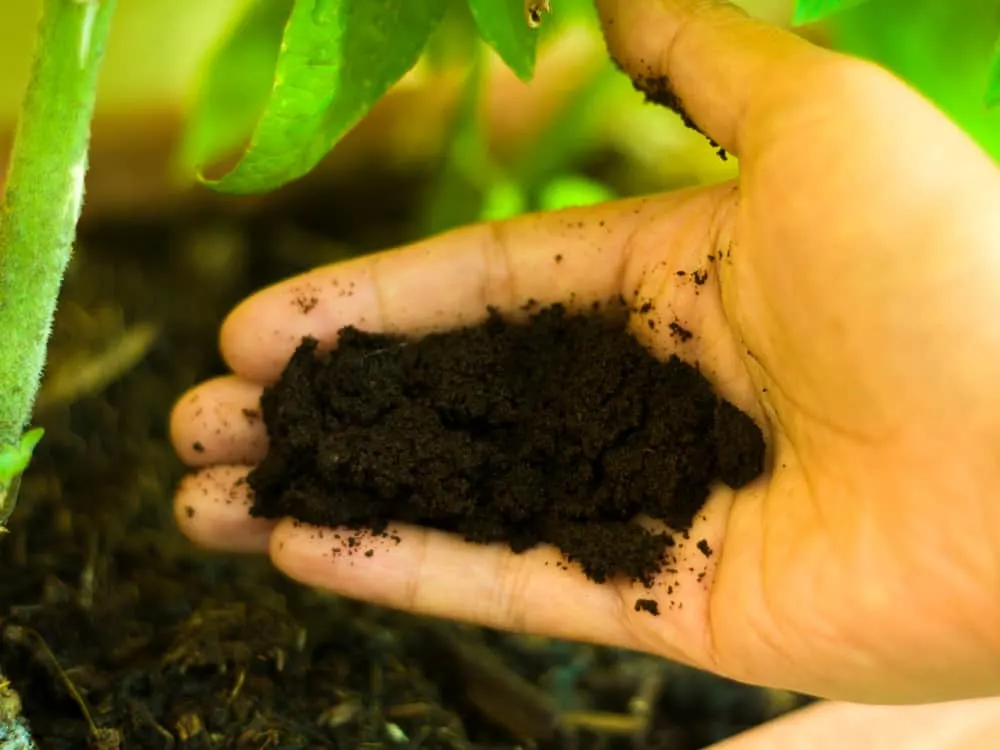
This is the most common claim, and it comes in two forms. Either it is recommended for use as a nitrogen-rich fertilizer, or it is believed to kickstart the growth of your tomato plants.
There is some truth to this claim, peppered with a bit of exaggeration. Coffee grounds contain around 2% nitrogen, and variable amounts of phosphorus and potassium, which are the core nutrients vital for tomato plant growth. As the grounds decompose, they will release these nutrients into the soil, making them available to the plant.
In theory, coffee grounds should therefore work as a slow-release fertilizer when added to the soil. They will not provide your plant with any immediate nutrients, but as they break down over time, they will increase the levels of nutrients in the soil.
However, if you’re looking to replace your regular fertilizer routine with mounds of coffee grounds, you may want to rethink your strategy.
Ordinary slow-release fertilizers designed to improve plant growth have a much higher concentration of nutrients than the measly 2% found in coffee grounds.
The effect of coffee grounds on growth has also not been scientifically proven. While they may give tomato plants a small boost of nutrients in the long run, the concentration of those nutrients is unlikely to have a visible effect on the plants when compared to other organic fertilizers.
There’s certainly no harm in testing out this claim for yourself. However, if you’re having problems with growth or nutrient deficiencies, don’t reach for the coffee grounds to solve your problems.
…To Acidify Soil?
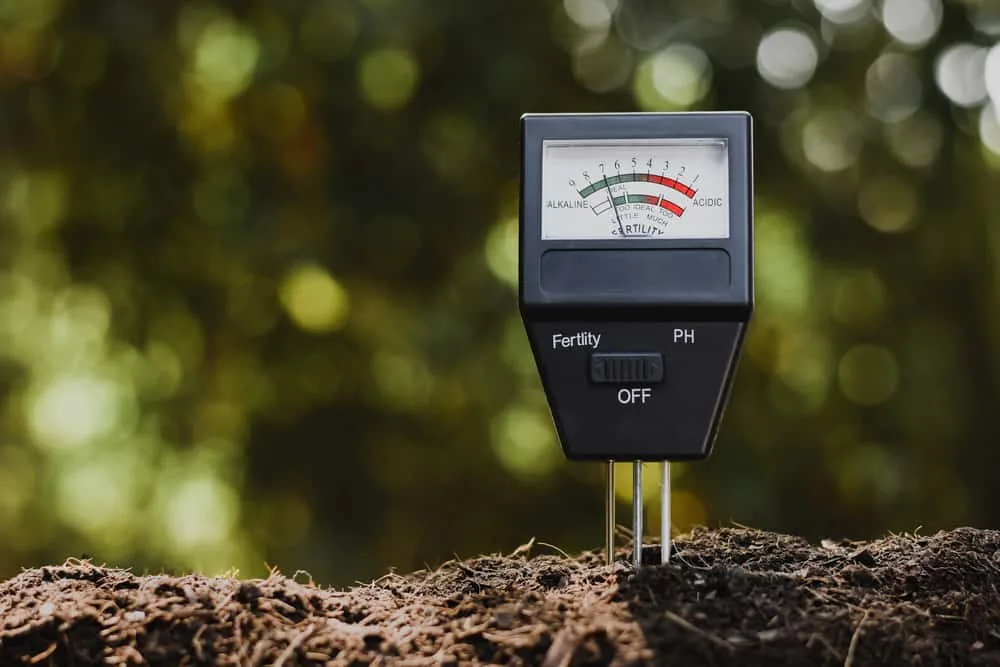
The second claim is that coffee grounds lower the pH of the soil, making it more acidic. Tomato plants grow best in soil that is slightly acidic, so it stands to reason that coffee grounds are great for the health of tomato plants. However, although tomatoes do like acidic soil, it appears coffee grounds are not the way to get there.
The average pH of coffee grounds is around 6.5, just below neutral. However, this number is not consistent. Some studies report pH levels lower than that, some far higher so they are actually alkaline.
But that is not the only concern here. The effects the grounds have on the soil are also unclear. Even if the grounds are acidic, there is no consistent evidence that adding them to soil has a measurable impact on the pH level in the desired way.
There are gardening products that can effectively lower the soil pH in your garden, but all products should be used carefully and according to the instructions. If you suspect a soil problem, always conduct a soil test first to determine the cause, as amending the soil pH unnecessarily could have a negative effect on your tomato plants.
…As Mulch?
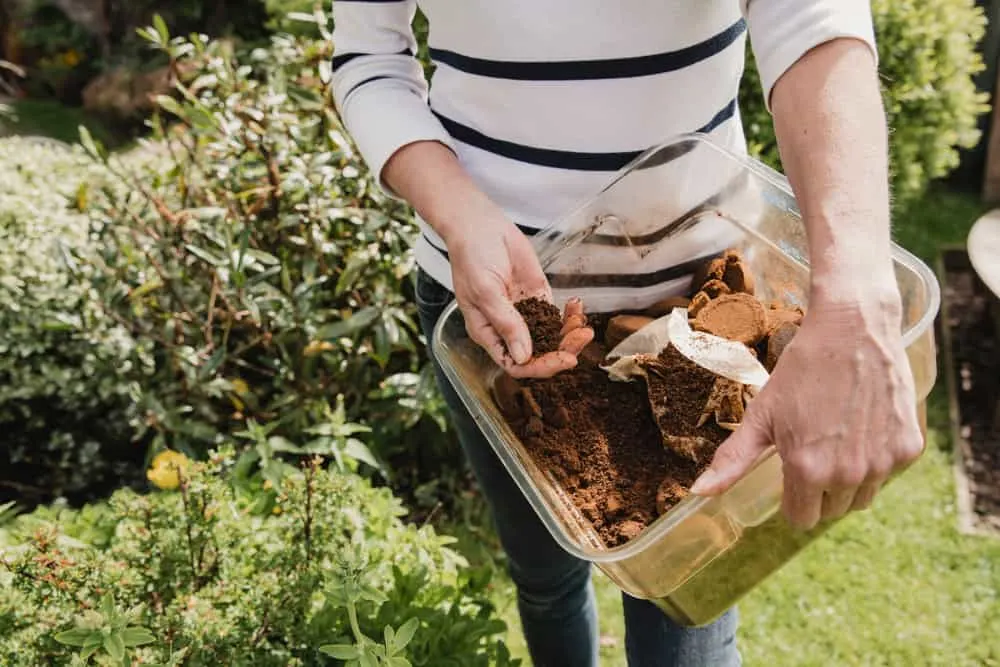
Many organic waste products work wonderfully as a mulch for tomatoes – dried leaves, straw, even grass clippings. Coffee grounds do not appear on that list.
On paper, they sound like a great mulch: fine-textured, organic, decomposes slowly to release nutrients and improve soil structure. In practice, however, they have some negative side effects.
To gain all the wonderful benefits, you need a pretty thick layer of mulch – at least an inch or two. Saving enough coffee grounds to make a layer of mulch that thick is hard enough, but when you apply it around your tomato plants, it will compact and form a hard layer above the soil.
Rather than retaining moisture, this actually prevents moisture from getting to the soil. It also stops air from reaching the soil, depriving the roots of oxygen and essentially suffocating them.
Despite these negatives, coffee grounds are still a great soil amendment – just not in the amounts needed to make a good mulch.
Instead, sprinkle a light layer of coffee grounds on the soil before adding a thicker layer of another organic mulch, or mix the coffee grounds in with the mulch before application. This way, you get all the benefits of coffee grounds in your garden, with none of the side effects.
…To Stop Weeds?
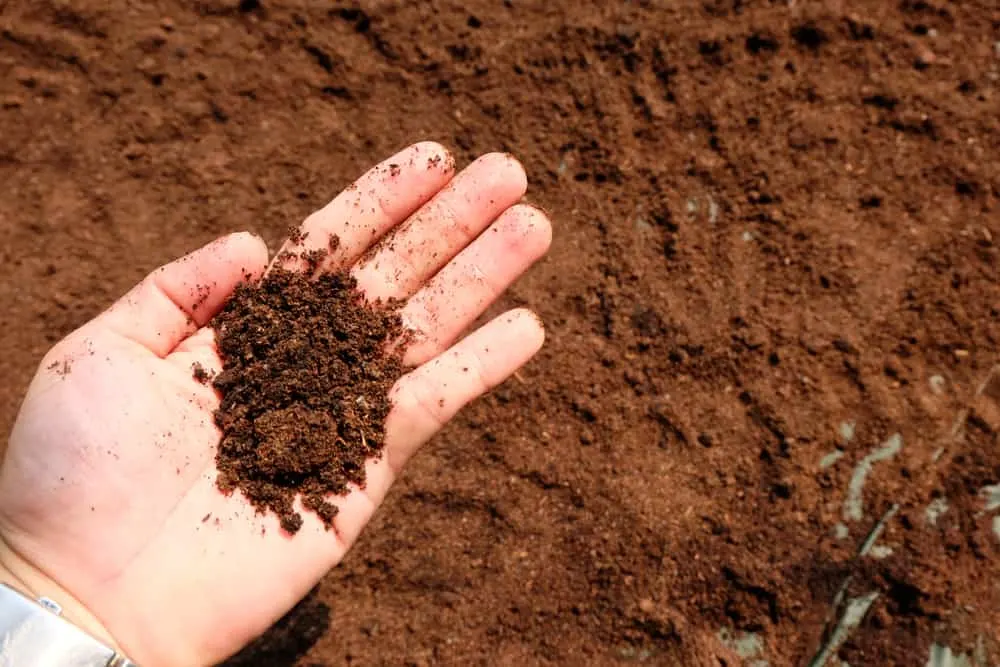
Similar to the mulch argument, coffee grounds are often suggested as a tool for weed prevention. And, like the mulch argument, is it unfortunately not completely true.
To effectively suppress weeds, you need a thick layer of mulch which, as discussed, is not very good for your plants.
The argument also stems from the belief that coffee grounds can inhibit the germination of some seeds, including weeds. Research has shown this is true for some weeds like clovers, but its effects on a range of weed seeds are unknown.
The amount needed to suppress weeds is also unclear, either to inhibit germination or as a mulch. You’re better off using the approved weed-suppressing methods and simply pulling weeds out as they emerge.
…To Kill Slugs?
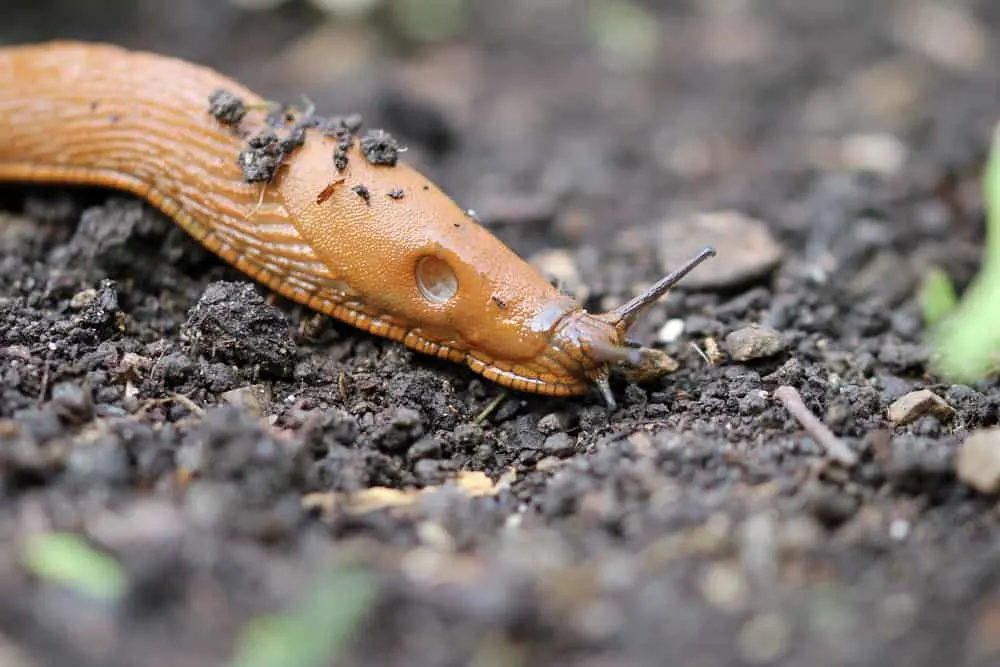
Slugs are an incredibly common problem in tomato gardens. This has led to the suggestion of a plethora of remedies, each declared successful in the fight against slugs and snails.
We’ve discussed this problem in relation to eggshells, debunking the claim that crushed eggshells will kill slugs. Now it’s time to debunk the myth surrounding slugs and coffee grounds.
This claim stems from the caffeine content of coffee. Slugs are indeed killed by high concentrations of caffeine, as research has shown.
The study applied concentrated caffeine to the foliage and soil of the plants and confirmed that it did indeed kill slugs. This has been extrapolated to mean coffee grounds will kill slugs too, as coffee contains caffeine.
However, coffee grounds contain such minimal amounts of caffeine that it is unlikely to have any effect on slugs or snails whatsoever.
The minimum threshold for caffeine concentration used in the test that had no effect on the snails – 0.01% – is still greater than the amount of caffeine in your coffee grounds.
In other words, if you have a snail problem, you’ll need to seek remedy outside your coffee cup.
…Prevent Fungal Diseases?
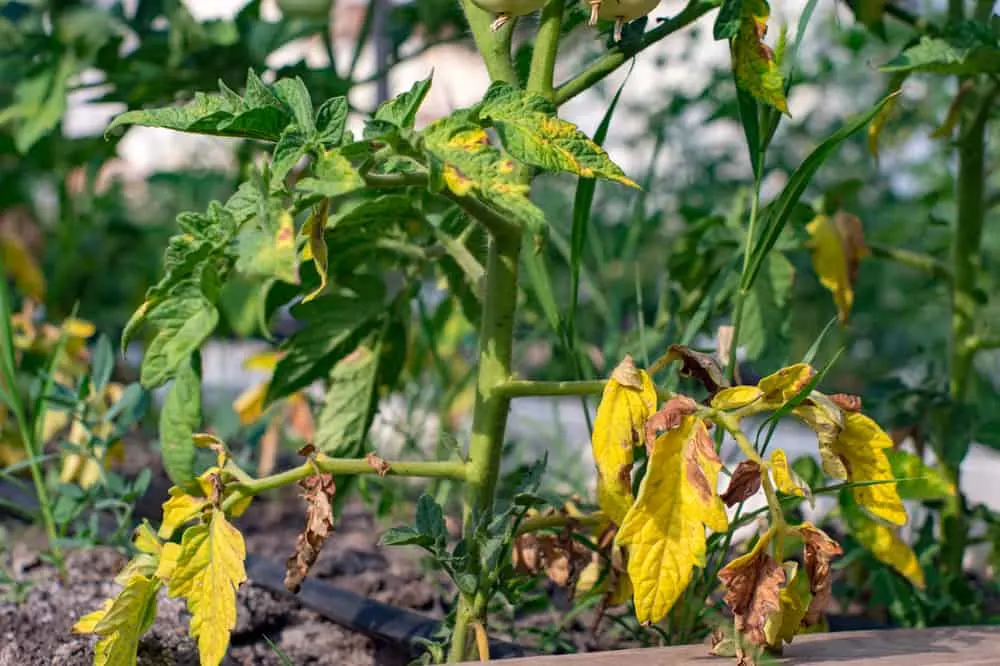
Fungal disease is something every tomato gardener wants to avoid. The serious cases, like Fusarium wilt, spell the end for your tomato garden as there is, unfortunately, no cure.
In attempts to prevent the scourge of fungal diseases in tomato plants, coffee grounds are commonly suggested as a remedy.
Several studies have examined the effects of coffee on fungal activity in soil. Some, like this study, have linked caffeine to the suppression of various fungal strains. However, the slug problem resurfaces – the concentration of caffeine needs to be much higher than what coffee grounds offer – 0.1% in this case.
Other studies, like this one, indicate that soil amendments (including coffee grounds) increase microbial activity, thereby suppressing fungal diseases. But, this study assessed Fusarium wilt of spinach, so its impact and interactions with other fungal diseases are unknown.
There may be some truth to this claim, but the evidence is not conclusive. Adding some coffee grounds to your soil mix before planting is unlikely to do any harm, but don’t count on it to prevent or kill any fungal diseases present.
…In Compost?
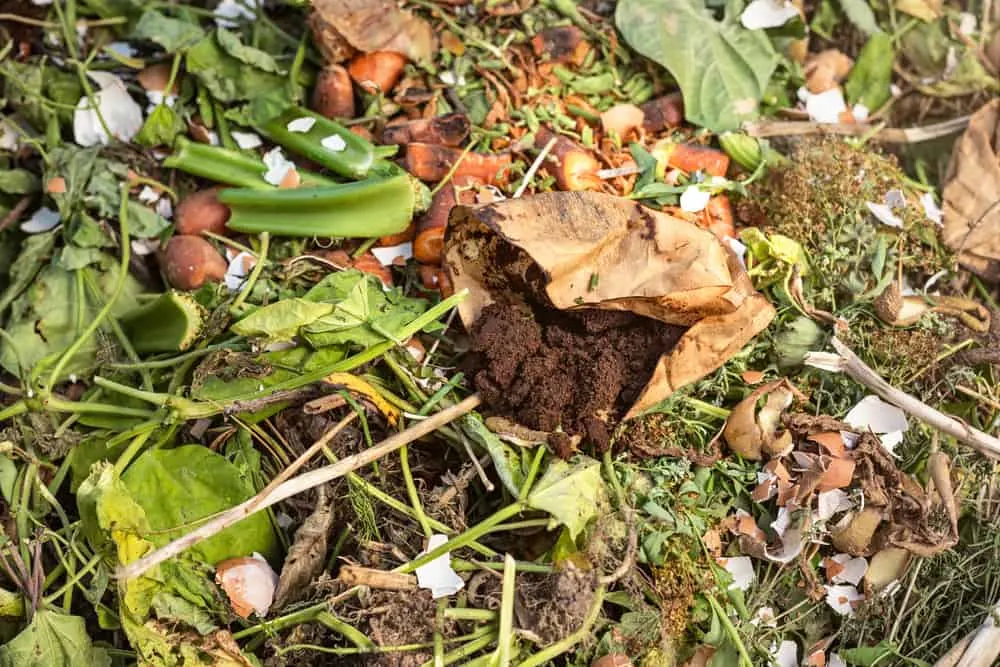
The final claim, another one that is widespread, is the benefits of the addition of coffee grounds to compost. And, to depart from all the other claims, this one is 100% true!
A healthy compost pile needs a ratio of carbon-to-nitrogen materials to break down efficiently and provide your plants with the range of nutrients they need. Coffee grounds form a fundamental part of the ‘green materials’ list (those high in nitrogen).
Adding around 20% coffee ground to your compost mix is ideal, as anything above 30% has been shown to inhibit decomposition.
Instead of wasting your coffee grounds on a gardening myth that doesn’t really work, save them all to add to your compost pile. That way, you’ll be guaranteed results from your efforts, and you don’t need to worry about any negative side effects.
